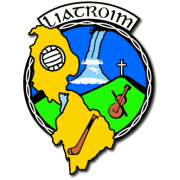Club Officer Profile – Secretary
Club Secretary
The post of Secretary is one of the vital links in any organisation and this is true of the GAA Club Secretary also. His/her duties are many and varied and call for a high degree of dedication.
Working closely with the Cathaoirleach, the Secretary has more to do with the practical running of the Club than any other member and should be carefully chosen for this position.
The post of Secretary is one of the vital links in any organisation and this is true of the GAA Secretary also. His/Her duties are many and varied and call for a high degree of dedication. These duties dovetail with those of the Cathaoirleach and it is essential that they work as a team of which the Secretary will very often be the more active one.
The Secretary has more to do with the practical running of the Club than any other member; he/she must therefore be carefully chosen.
He/she should be a good organiser, tidy and methodical, tactful and friendly and
above all reliable.
A good Club Secretary means there is good management of administration of the Club. Club management is not an end in itself. Our job is to enable people to enjoy and play our games, to develop the games and to further the social and community aims of the Association. The level of administration should therefore be the minimum to achieve
these aims.
The great difference in size and range of activities of Clubs, and between rural and urban areas make it impossible to impose standard methods; that would not be desirable in any event. Flexibility in the local situation is important.
These notes may not always be relevant to your situation but the general principles will apply no matter what the size
of your Club.
Even in amateur organisations, the members and the general public now demand professional standards of administration by voluntary officials.
– Meetings: Work before, during and arising out of meetings, including the Annual General Meeting.
– Records: Keeping records and files of Club activities, including membership
– Correspondence: Match notices, letters, filling in forms etc
Meetings
A Club should hold regular committee meetings even if at times there appears to be little to be done. Coming together may spark off some needed activity ! It is helpful to specify a night say, last Thursday of the month or Thursday of each week.
At the first Club meeting of the season, all should agree on a time and meetings should begin at that time. Punctuality is merely a habit. Meetings should also close formally so that everyone, including the Secretary, is quite clear when the business is concluded. Essential business should be transacted first. A good deal can usually be left over for the "chat" after the meeting. This enables those who want to leave to do so.
The secretary usually calls a meeting. If held weekly, no notices are necessary unless there is something special on
the agenda. In that case, members should be told about it in advance so they can think it over. For monthly meetings,
written notices with an agenda should be issued.
There should always be an agenda for a meeting, though not necessarily distributed to all members. Unless the members are very familiar with it, the Cathaoirleach should read the agenda; this prevents members raising matters at the wrong time.The Cathaoirleach and Secretary should meet before the meeting and go through the agenda. An agenda could be on the following lines:
– Minutes
– Matters Arising
– Correspondence (for letters, etc. not relevant elsewhere on the agenda)
– Report from County Committee or Divisional Committee
– Fixtures and Transport ( to decide on …regarding fixtures , to discuss ….regarding transport)
– Finance
– Fund-Raising
– Other activities
– Other Business (only matters of minor importance to be dealt with here)
It is always helpful to members to give an indication of the exact business to be dealt with under common headings such as Fixtures, Finance and Transport etc. – this way members come to a meeting better prepared to participate. The Secretary must prepare the business for the meeting, i.e. get together any information that may be needed. He/She should also check back on the minutes of the last meeting to see that action has been taken as required. The Secretary should make all the physical arrangements for the meeting.
During the meeting, the Secretary must record the attendance of each member and apologies for absence. The Secretary takes a note of decisions reached. He/She should not try to write everything down, but should follow the sense of the discussion, listening for key points. If in doubt about decisions, the Secretary should ask for clarification.
The Secretary may have to assist the Cathaoirleach in the conduct of the meeting and ideally both officers should work together to get the meeting over quickly.
One of the problem areas at GAA Club committee meetings is that of match reports as the games tend to be played all over again! This trend must be resisted but meetings should end inÓgood time to enable "informal" discussion to take place afterwards.
After the meeting, the Secretary must write the minutes. This should be done as soon as possible. Usually minutes should only record what was dealt with and what decisions were taken. But sometimes the main points raised in a discussion may need to be recorded. Do not give a verbatim account. Minutes should be written in a proper Minute
book.
The special requirements of the Club Annual General Meeting are dealt with in the Club Manual.
Records
The Club Secretary is responsible for keeping records of matches, venues, dates and winners. He/She should also arrange for membership records, unless there is a separate Membership Secretary. Simple files about various Club activities should be kept as all such items will be sought for the compilation of a Club History or a Centenary Year
Book etc. A petty cash book is also necessary for recording payments of small cash amounts, i.e. postage, telephone calls, etc.
Correspondence
The Club Secretary will be the main link with the Divisional Board or County Committee. He/She should deal expeditiously with all correspondence, if necessary after consulting with the Cathaoirleach. He should use a well designed Club letter heading and keep copies of all important letters.
The Club Secretary, if he/she has a good knowledge of Irish, can do a great deal to promote it in simple ways, both oral and written. The booklet "An Sloinnteoir Gaeilge agus an t-Ainmneoir" is an essential booklet for the Club Secretary. A good source book for GAA terminology is the Report of the Commission on the GAA which was printed bilingually.
‘An Treoraí Oifigiúil
The Club Secretary must always have a current copy of the Official Guide. He/She should be familiar with the provisions dealing with Club activities.
30-Dec-07 by PJ Meehan – Development Officer



